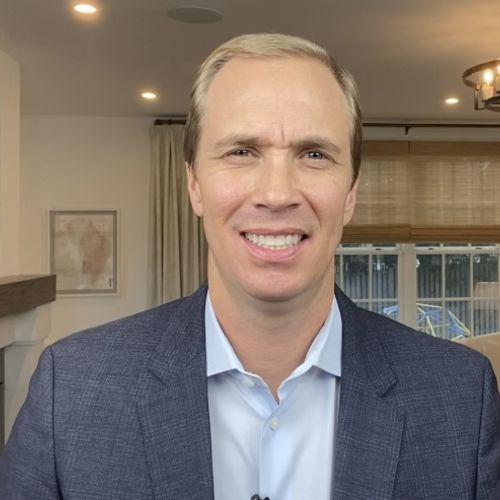Which came first, the chicken or the egg? The modern-day version of that question is, which came first, the house or the spouse?
A common perception is that the spouse comes first. Find someone you want to be with, settle down, get married, and search for your dream home together. However, that seems outdated.
The fact is, people are getting married much older than they used to. In 1998, the median age of men for their first marriage was 26.7. In 2021, the median age for men’s first marriage was 30.6.
For women, the median ages were 25 and 28.6. I’m sure these numbers are even higher when looking at major cities across the U.S.
Following the adage of waiting to get married to buy your first property, you’re losing years of appreciation, mortgage paydown, and your opportunity to house hack.
Before we go any further, let me state that I don’t support buying a property together with a significant other before getting married. I know you love each other, and it’s just so perfect. But the fact is, people break up.
Yep, not all relationships work out. Actually, most of them don’t. So, do yourself a favor and wait until you’re married to buy “with” a significant other. I’ve seen it go bad too many times.
However, that shouldn’t hold you back from buying a property before marrying or even dating anyone.
Common excuses for not buying before you get married:
- I’m waiting until I’m married so we can buy a home together.
- Excellent, buy your dream home together once you’re married. But you don’t know when you will find the right person. I got married when I was thirty-six, and my wife was thirty-seven.
Let’s assume you go to college and start your career at age twenty-two. You’re most likely living with roommates and could be house-hacking immediately.
If you get married at thirty, that’s eight years of home ownership that you would be missing. Just imagine if you started house hacking in college. More on those numbers later.
- I’ll be able to buy something nicer when I’m married and have a dual income.
- You will likely have a higher budget when you combine your income with someone else’s. But what if you bought properties along the way that gained equity?
You could sell them when you’re ready to buy with your partner and your budget would be even higher. Even better, those properties could be cash-flowing, and you could use that money to pay your mortgage on the property you buy with your spouse.
This could increase your home-buying budget or cover the mortgage so you can start your race to financial freedom.
You’ll be living in the “not so nice” place along the way anyway. Instead of renting it, why not own it and rent it out to your roommates? And then others after you move out.
- I don’t know where I’ll live with my partner when we’re married.
- The same rules apply as above. If you don’t live in the area, sell the property or hire a property manager. Chances are, you made some relationships with people in the area, and you can manage from afar with boots on the ground to save some money.
What is House-Hacking?
House-hacking is a term used when you generate income from your primary residence. You can do this when owning a multifamily property by living in one unit and renting the other unit or units out.
You can also do this by living in one room in your residence and renting the other bedrooms out to roommates.
It’s the simplest and lowest-cost way to become a real estate investor.
If you can make the numbers work to where you make money monthly, great! Even if you’re not making money, you’re reducing your monthly housing cost, which is your most considerable expense.
You will also benefit through depreciation for tax purposes, mortgage paydown, and you’ll most likely grow your wealth through appreciation.
As if it wasn’t good enough already. Since you’ll be living in the property, you can get a loan where you’re putting as little as 3.5% down. This low downpayment option is a huge perk considering when you buy an investment property that you won’t be living in, you generally need to put 25% down.
Remember when I mentioned earlier that you could get aggressive and do this in college? Partner with your parents and house hack in college. You’re most likely going to have roommates anyway. Why not have them pay you?
Your parents don’t want to own a rental with crazy college kids living in it? Well, that’s a topic for a whole different article but consider this.
College kids are co-signed by their parents. Which means their parents are financially on the hook for any damage to the property. And for the rent that’s due.
Here’s what you’re missing by waiting until you get married to buy real estate:
For this example, I’m using an actual property sold in the MLS (Multiple Listing Service) in January 2018 and then again in August 2022. I don’t have any association with the property. I just did a quick search to come up with these numbers.
Age: 25
3 Bedroom Townhouse
Property Purchased: January 2018
Purchase Price: $345,000
Down Payment: $12,100
Closing Costs: $10,350 / you can also negotiate for the seller to pay this
Monthly Payment: $2,083 (incl.: principal, interest, taxes, insurance, HOA)
Rent Rooms: x 2 = $1,400 (rent out the primary bedroom)
Your Monthly Outlay: $683
Age: 30
January 2023 Numbers:
Same Property Sold in August of 2022: $430,000
Closing Costs: $21,500 Realtor Fees / $2,050 additional closing fees = $23,550
Total purchase and selling costs: $10,350 buying costs, $23,550 selling costs = $33,900
Sold Price: $430,000 minus $33,900 = $396,100
Mortgage Paydown: At the end of the five years, you owe $296,000 on the mortgage
Total Profit of $100,100
Over that five years, you would have paid approximately $7,200 a year for a total of $36,000 in rent if you had rented instead of buying.
That’s a benefit of $100,100 to buying vs. renting!! In five years. You would have gained $20,020 per year by buying instead of renting. That doesn’t even include tax benefits. The numbers only go up if you do a more extended calculation.
Over time, your property will appreciate. As a landlord, you will continuously increase the rent, and your mortgage will stay the same.
Also, the longer you have your mortgage, the higher amount of your monthly mortgage payment goes toward principal instead of interest. Which means your mortgage balance goes down in larger increments.
In reverse, if you were to continue renting, your rent would be increased yearly.
Now let me get you thinking. What if you started this process at 25 and bought every two years until you married at 35? That’s five properties in your portfolio with which you would have purchased and built your wealth.
As much as we want to, we can’t predict the future. We don’t know when we’ll get married, what interest rates will be, how much rent will go up, or how much real estate prices will increase. But we can look back through history and recognize that real estate has continuously gone up, not down, over time.
“Buy and wait. Don’t wait to buy”


